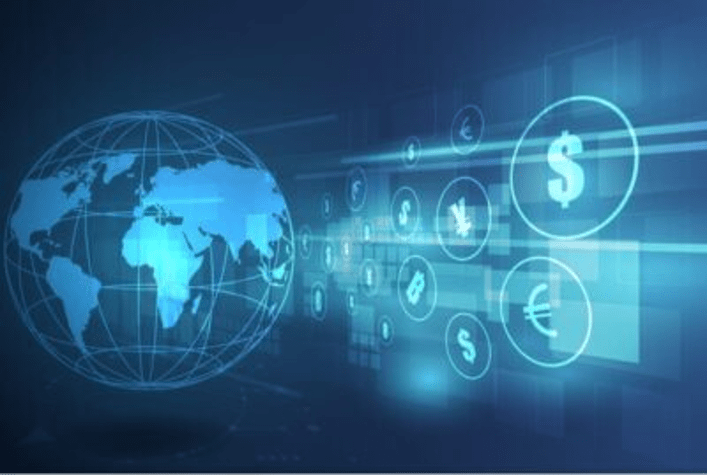Fintech For Good
By Ingrid Vasiliu-Feltes, MD MBA
Futurist, Globalist & Chief Ethics Officer
Background
Several organizations have highlighted the important role the private sector and governments have in expanding digital financial inclusion due to the tremendous impact it can have on society. One way to illustrate how financial inclusion drives economic growth is by tracking impact on the 17 United Nations Sustainable Development Goals (SDGs). Several reports from international organizations such as UNCDF, World Bank, WEF have demonstrated how digital finance can change the lives for many when delivered responsibly at a global scale. Due to the pandemic, the role fintech can play is even more vital as it can help with economic recovery and it can help mitigate some of the major setbacks in the progress that many countries were making towards reaching several SDGs.
Fintech companies have been able to adapt better than others to the uncertain economic landscape and the massive change in social behaviors has accelerated development of certain sectors such as e-commerce and digital payments. Despite the massive operational and business model changes they had to perform, fintech companies have been remarkably resilient though this crisis and we are witnessing exponential adoption and an accelerated pace of innovation across the fintech spectrum.
Inclusive digital financial services encompass mobile money, electronic payments, insurance, credit, neobanking platforms. They all can drive economic growth and facilitate a faster progress towards achieving SDGs. Shifting payments from cash to digital, affordable bank accounts to facilitate savings and development of a financial history, ability to access and benefit from financial aid or loans.
While access to digital finance clearly has an impact on all SDGs, a few stand out more than ever due to the profound impact of this pandemic, such as promoting access to healthcare and therefore improving SDG 3, ability to pay for education ( SDG 4) and a pathway to decent work (SDG 8).
The pandemic has sadly highlighted all the weaknesses in our global healthcare ecosystem and deploying the full spectrum of novel fintech services can redefine healthcare delivery, and healthcare management systems, as well as change the paradigm for global population health.
Fintech services not only can increase access to financial services and improve financial fluency, but they can also disrupt the whole education ecosystem by offering alternative funding mechanisms and payment models.
The most evident and direct impact fintech services can have is for SDG 8 through reduction of the digital divide and by increasing financial inclusion. This is accomplished by banking the underbanked, as well as providing the ability to establish credit and serve any unmet credit needs. By offering pay as you go models available, low income communities can have access to social benefits, as well as basic services such as electricity, water, sanitation which empower them and can lift many out of the extreme poverty status.
Opportunities
Increased fintech investments across all continents have facilitated expansion of services to new industry sectors, across various value chains, to new demographics and at a larger scale. Many companies that had been reluctant to engage and adopt fintech services prior to the pandemic were now forced to rapidly pivot towards a fully digital operational model. Among all opportunities we have due to the current economic climate one has the most potential to affect change: user-centric digital identity. By increasing the deployment and enablement of digital identities, digital notaries and digital access management we can accelerate the access to essential government services, healthcare, education and financial services.
Challenges
Macro-Economic and micro-economic forces, regulatory and legal hurdles, as well as a fierce competitive environment are all challenges that will need to be overcome. The pandemic has certainly facilitated a more permissive regulatory landscape, with new frameworks being published that are more conducive to large scale adoption. Clarification of virtual assets and virtual asset provider definitions, cross-border payments, tax law for digital assets, digital reporting systems for payments and securities will have to be on the agenda of regulatory bodies globally.
Future Direction
A global enhanced collaboration among multiple stakeholders will be required in order to have Fintech fulfill its noble mission to contribute to the greater good by further accelerating the pace of recovery and the progress towards reaching the SDGs in the post-pandemic era. Unique task forces for each SDG goal could be created to design specific guidelines on how to leverage and deploy fintech portfolio of services in order to reach the most vulnerable populations, build a sustainable global digital infrastructure and recuperate the pandemic-induced lost progress. To complement those efforts, we will also need to enhance and harmonize the regulatory landscape in order to further optimize the impact fintech can have on economic growth and pave the ways for reaching the SDGs.
- NFTs- to trust or not to trust? - June 2, 2021
- Fintech Future-Disrupt or Be Disrupted - May 2, 2021
- Fintech Future- Embracing ESG - April 11, 2021


Stay connected